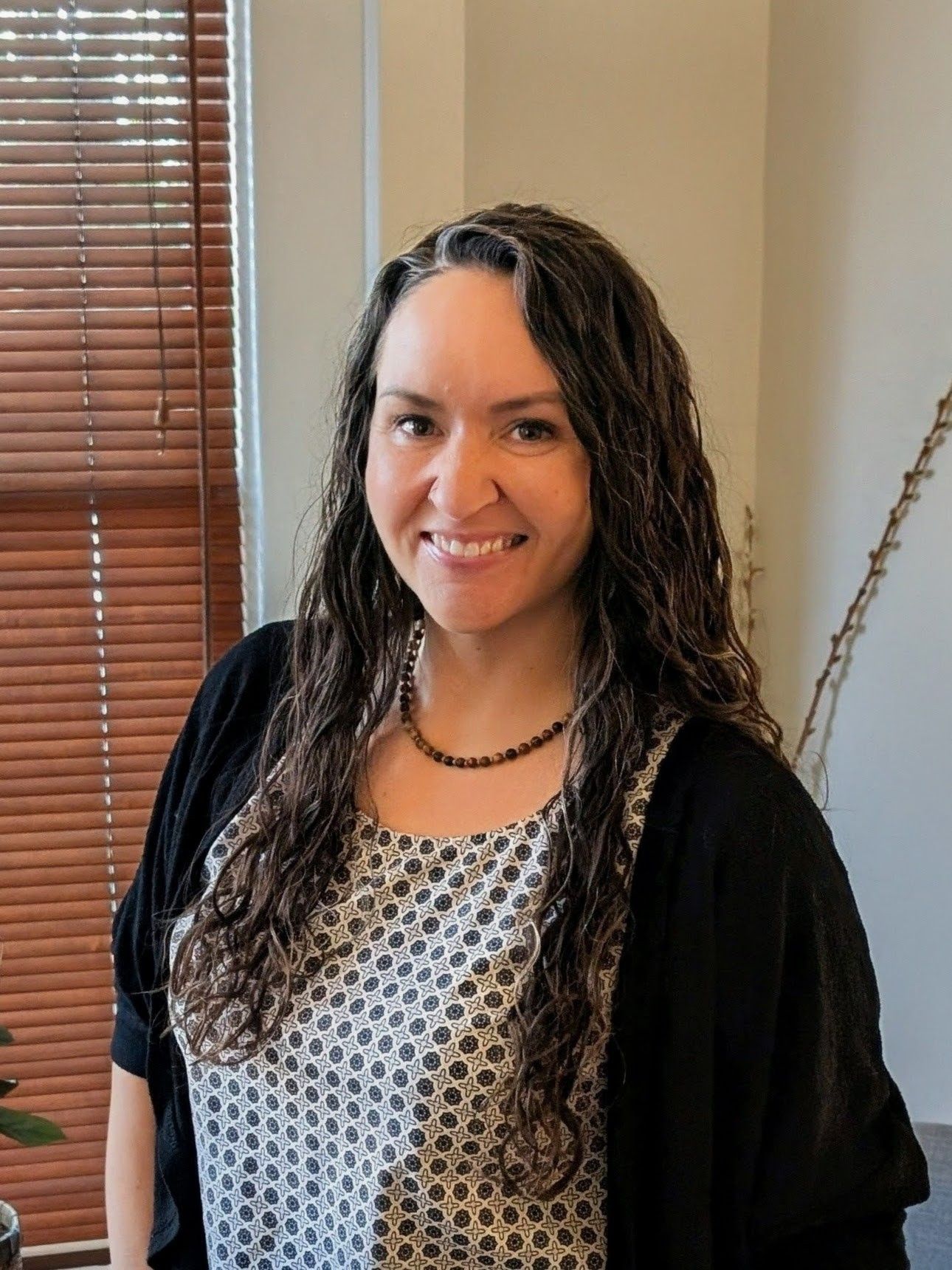Posts Tagged ‘marriage counseling reno’
7 Signs You Need Marriage Counseling / Couples Therapy (2026 Expert Guide)
Most couples try to “self-help” their way out of a rut before seeking professional support. While books and podcasts are great, certain patterns—like constant circular arguments or a total lack of intimacy—benefit most from expert intervention. If you’ve found yourself asking, “Should we do marriage counseling now?”, you’re already taking a brave first step toward healing.
In this guide, I’ll break down 7 critical red flags that suggest your partnership needs the specialized support of couple counseling & marriage therapy. Recognizing these signs early allows you to move from “roommate mode” back into a deep, connected relationship.
7 Signs Your Relationship May Be in Trouble
1. Diminished Priority on Quality Time Together
In the early stages of a relationship, the thrill of spending quality time together is often incomparable. However, if you find yourselves gradually drifting apart due to other commitments or distractions, it’s worth taking a closer look at the health of your relationship. To be clear, life has a way of keeping us busy, but a consistent decline in the time spent together could be an indication of fading interest in nurturing your bond. That said, it’s crucial to differentiate between evolving priorities and emotional detachment.
2. Communication Becomes Stagnant or Scarce
Effective communication is the lifeblood of a thriving relationship. When your conversations start feeling repetitive, mundane, or infrequent, it may be a sign of diminishing emotional intimacy and connection.
3. Negative and Minimal Communication
Meaningful communication should uplift and strengthen your relationship. If your interactions are marred by negativity, frequent arguments, or criticism, it can slowly erode the trust and harmony in your partnership.
4. Conflict Breeds Resentment Instead of Resolution
When disagreements persist without resolution, they turn into “attachment injuries.” Instead of just arguing about the dishes, you’re arguing about whether your partner is there for you. This is where Emotionally Focused Therapy (EFT) is incredibly effective—it helps you get underneath the anger to the core needs that aren’t being met.
5. One Partner Voices Concerns
Often, one partner may sense trouble in the relationship before the other. If your partner expresses concerns or dissatisfaction, it’s crucial to take their feelings seriously and initiate an open and honest conversation. This is another factor in answering, “should we do relationship counseling now?”
6. One Partner Shows Reluctance to Listen
Effective communication involves active listening from both partners. When one partner consistently dismisses the other’s thoughts and feelings without a willingness to engage, it can lead to frustration and emotional distance.
7. Criticism of Differences Instead of Embracing Them
If you find yourself constantly criticizing your partner’s personality rather than their behavior, there may be deeper individual stressors at play. Sometimes, the best way to show up for your marriage is to spend time in individual counseling to understand your own triggers and reactive patterns.
Conclusion
Healthy relationships require nurturing, communication, and mutual effort. Determining whether you should do relationship counseling isn’t always easy. Recognizing these warning signs that your relationship might be encountering challenges is the first step toward addressing any underlying issues and rekindling the flame of love. If you identify with any of these signs, consider seeking professional guidance and at the least, engaging in a sincere conversation with your partner about your concerns. Relationship counseling like EFT can get you back on the path of connection. Remember, with dedication and mutual support, many relationships can overcome obstacles and emerge stronger than ever before!
Meet Amy Aranda, CSW-I
Meet Amy – Clinical Social Work Intern
Hi, my name is Amy Aranda, and I am a clinical social work intern here at Individual & Relationship Counseling Associates. I bring over 7 years of experience in the mental health field, with a background that includes supporting clients in a residential eating disorder treatment facility as a recovery coach, working in medical office management, collaborating with treatment teams, and coordinating care for clients in need of higher levels of support.
These experiences have given me a strong foundation in understanding the many ways emotional struggles can impact daily life, and I am passionate about helping both individuals and couples overcome challenges so they can live with greater connection, balance, and fulfillment.
My Therapeutic Approach
I believe everyone deserves to feel truly heard and understood. My approach is collaborative and compassionate, and I work side by side with clients to create meaningful change. I have training in attachment-based Emotionally Focused Therapy (EFT) for both couples and individuals, which means I focus on strengthening the bonds that help us feel secure, connected, and resilient.
In addition to EFT, I draw from a variety of evidence-based therapies to support your unique needs, always with the goal of helping you navigate emotional struggles and move toward the life and relationships you want. Whether you’re seeking support for individual concerns or want to deepen your connection with a partner, I provide a safe, supportive environment where growth and healing can take place.
About Me Outside of Therapy
Outside of my work as a therapist, I love teaching Zumba fitness and ice skating classes. For me, movement, artistry, and self-expression are an important part of self-care, and I find joy in inspiring others to have fun while learning new skills.
I also treasure time with my wife and our beloved pets. In the summer, we enjoy camping and being outdoors together—it’s one of the ways I recharge and stay grounded.
Supervision and Fees
I am currently practicing under the supervision of Cornelius Sheehan, LCSW. I am committed to offering high-quality, client-centered care. My standard session fee is $120, and I also offer a sliding-scale option to help make therapy more accessible.
Availability
I am available for sessions most weekdays after 3:00 pm, with some Saturday appointments also offered. I do my best to remain flexible to meet client and scheduling needs.
When Couples Therapy Makes Things Worse: Why Some Approaches Fail—and How EFT Gets It Right
Does Marriage Counseling Work? It Depends…
Introduction:
I read a forum post recently where the author was gathering opinions about, “does marriage counseling work?” My internal voice was, “well of course it does!!” But this isn’t always true: it depends on a number of factors. In this article I’m speaking to couples who are wondering whether marriage counseling works, and perhaps more importantly, whether it will make things worse. After all, if things are bad then at least doing nothing isn’t likely to make them worse, right? This is why I said, “it depends” in the subtitle.
In my years as an Emotionally Focused Therapist, I’ve had the privilege of guiding many couples through meaningful change and growth in their relationships. I’ve seen many couples reconnect and rediscover love and trust with EFT. However, I’ve also encountered situations where well-intentioned therapeutic interventions had inadvertently made existing challenges worse. Here’s an example:
I recall one couple, I’ll call them Sarah and Mark, who sought my help after months of behavioral-based couples therapy. They were nearing the end of their rope, their communication patterns mired in blame and defensiveness. Mark felt unheard and unaccepted, while Sarah felt unimportant, like she didn’t matter to Mark the way she had earlier in their relationship. Their previous therapist (8-sessions) had focused on instructing them regarding communication techniques, but this only seemed to intensify their conflicts. Each new “technique” became another tool for discord. Conflict began to center around who was at fault for not following the therapist’s instruction. They were feeling hopeless when I met them. They were also feeling sort of, “like a couple of frauds,” as they put it, because friends and acquaintances considered them an ideal couple.
Sarah and Mark’s experience is unfortunately not uncommon. Many couples enter therapy seeking support, only to find themselves feeling more disconnected and discouraged. Our local Reno therapists, Individual & Relationship Counseling Associates, understand this potential risk.
The Challenges of Traditional Marriage Therapy
Often, traditional couples therapy can become mired in continually identifying problems and assigning blame. As Sue Johnson, the pioneer of EFT, aptly observes, “Many couples come to therapy talking about communication problems when what they really need is help with the underlying emotions driving those problems.” (1)
Instead of fostering understanding and connection, this approach can leave couples feeling increasingly isolated and misunderstood. John Gottman, a leading researcher on marital stability, echoes this concern: “Most couples therapy focuses on changing behaviors, but what really needs to change is the emotional connection.” (2)
Specific challenges of traditional couples therapy models include:
- The Blame Cycle: Some approaches inadvertently encourage partners to focus on each other’s perceived flaws, fostering criticism and defensiveness, which can further erode their bond.
- Surface or Content-Level Focus: Traditional therapy may get caught up in the content of arguments, overlooking the deeper emotional needs fueling those conflicts. This is akin to addressing symptoms while neglecting the underlying cause.
- Neglecting Attachment Needs: Humans have an innate need for connection. When these needs are unmet, we often react with fear, anger, or insecurity. Traditional therapy may not always address these fundamental needs, leaving couples feeling alone and unsupported.
- One-Size-Fits-All Solutions: Many therapists rely on standardized techniques and interventions that may not resonate with the unique dynamics of each couple. This can lead to frustration and a sense of being misunderstood.
Does Marriage Counseling Work? EFT: A Path to Emotional Safety and Connection
We do Emotionally Focused Therapy (EFT) for couples and it offers a different path. It recognizes that conflict is often a cry for connection, a desperate attempt to get our partner’s attention and feel loved and secure. In simple terms, Emotionally Focused Therapy (EFT) for couples is a roadmap to understanding and healing the emotional wounds that cause conflict in your relationship. Learn more about couples therapy with us.
EFT guides couples through a process of:
- Uncovering Hidden Emotions: EFT helps you and your partner identify and express the deeper emotions that are often hidden beneath the surface of your arguments. These emotions might be fear, hurt, loneliness, or feeling unloved. Once these emotions are out in the open, you can start to make sense of them and address them.
- Creating a Safe Space: Your therapist will create a safe and supportive space where both of you can feel comfortable sharing your emotions without fear of judgment or criticism. This safe space is crucial for healing and building trust.
- Understanding Your “Dance”: EFT therapists help you recognize the negative patterns or “dances” you get stuck in during conflicts. These patterns often involve one person pursuing connection and the other withdrawing. Understanding this dance helps you break free from it.
- Changing Your Steps: With the therapist’s guidance, you’ll learn new ways to respond to each other’s emotional needs. This involves expressing your own needs more clearly and responding to your partner’s needs with empathy and understanding.
- Building a Stronger Bond: As you learn to communicate more openly and connect on a deeper emotional level, you’ll start to feel closer and more secure in your relationship. Trust and intimacy will grow, and you’ll be better equipped to handle challenges together.
Does Marriage Counseling Work? Only if it gets to the root of distress!
Think of EFT like learning a new language – the language of emotions. Instead of speaking in accusations and criticisms, you’ll learn to express your needs and feelings in a way that your partner can understand and respond to. This new way of communicating can transform your relationship from a battleground into a safe haven.
It takes time and effort to change deeply ingrained patterns. I saw this positive change unfold with Sarah and Mark. As we delved into their deeper emotions, they began to understand the pain and fear that fueled their conflicts. Mark realized that Sarah’s criticism stemmed from a fear of abandonment, while Sarah recognized that Mark’s withdrawal was a way of protecting himself from feeling hurt. As they learned to express their needs more vulnerably and respond with compassion, their relationship began to heal.
Very importantly, when Sarah and Mark found themselves stuck in their negative pattern at home, they had a strategy. They were able to slow things down and realize they were bogged down. This gave them an opportunity to regroup and talk in more emotionally vulnerable terms. Specifically, to describe how their respective criticism and defensiveness were reactions to feeling disconnected and misunderstood.
Conclusion:
Does marriage counseling work? Couples therapy can be a valuable tool for healing and growth, but only when it addresses the root of the problem: the emotional disconnection that drives conflict. Emotionally Focused Therapy (EFT), as offered by practices like Individual & Relationship Counseling Associates in Reno, offers a roadmap for couples to navigate their emotional landscape, heal old wounds, and create a more secure and loving relationship. If you’re considering couples therapy, choose wisely. This article outlines questions you might ask a prospective therapist. Your relationship is worth it.
Citations:
(1) Johnson, S. M. (2004). The Practice of Emotionally Focused Couple Therapy: Creating Connection. Brunner-Routledge. (2) Gottman, J. M., & Silver, N. (2015). The Seven Principles for Making Marriage Work. Harmony.
Will My Insurance Cover Therapy?
Individual & Relationship Counseling Associates
Why Verify Your Therapy Insurance Benefits?
A common question (view our FAQ’s here) we are asked at our therapy center in Reno is, “will my insurance cover therapy?” Understanding your insurance coverage for mental health services is an important step in making informed decisions about your care. This form will guide you through a conversation with your insurance company to help you understand your out-of-network benefits for therapy sessions.
Send us an email to receive a printable version of this form.
Before You Call:
- Gather your insurance card and any relevant policy information.
- Have a pen and paper ready to take notes.
- Be prepared to wait on hold or be transferred to different departments.
Call your insurance company at the Member/Customer Services line. They may ask for your patient ID number. Each insurance carrier organizes its phone menu options differently, but you should listen for the options of checking benefits and eligibility and checking mental or behavioral health benefits. If possible, choose to speak to a live representative. If this is not a menu option, you may be able to reach one by verbally asking for a representative or for customer service. You may be transferred before reaching the representative who can tell you your benefits. Note the date you call and the call reference number.
Client Name: _________________________
Date: _________________________
Insurance Company: _________________________
Member/Customer Service Phone Number: _________________________
Call Reference Number: _________________________
- Benefit Period: (The year your coverage is active) _________________________
- Out-of-Network, Outpatient Mental/Behavioral Health Benefits:
- Individual or Family Benefits (or both): _________________________
- Deductible:
- Individual: _________________________
- Family: _________________________
- Amount Met Towards Deductible:
- Individual: _________________________
- Family: _________________________
- Coinsurance Rate (Percentage patient pays): _________________________
- Out-of-Pocket Maximum:
- Individual: _________________________
- Family: _________________________
- Pre-Authorization Requirements: _________________________
- Claims Address: _________________________
Additional Notes: _________________________
Will My Insurance Cover Therapy? An Example:
Let’s say the representative gives you these benefits:
Benefit period: 5/1/25-4/30/26
Deductible: $1,000 Amount met towards deductible: $300
Coinsurance rate: Insurance responsibility: 60% Patient responsibility: 40%
Out-of-pocket maximum: $5,000
Explanation:
These benefits are applicable during your benefit period. This means that on 9/1/16, a new benefit year begins. The benefit year is important to know because it tells you when the accumulation towards the deductible starts over. Many insurance companies will tell you the effective dates of the policy before they tell you the benefit period. This can be confusing, because both of them are dates and may be given at the beginning of the call, but make sure you ask for the benefit period specifically. You can ignore the effective dates for this worksheet.
Deductible Amounts:
Often, a deductible must be met before reimbursement is possible. In this example, that means that the patient has to spend $1,000 out of pocket before reimbursement can begin. Insurance companies will reimburse a percentage of the usual and customary fee for a therapy session. They will not tell you the usual and customary rate, but it is determined by typical session costs in your region. Often, this rate is lower than the actual fee you paid for your session.
The percentage of the usual and customary fee that the insurance company covers is known as the coinsurance rate. Be sure to find out what percentage the insurance company will cover and what percentage you will cover after the deductible is met. In this case, the insurance company will cover 60% of the fee after the deductible is met. For this example, let’s say the usual and customary rate is $100. The insurance company will send back $60 for every session after the deductible is met. The patient will have had 60% of the usual and customary rate reimbursed.
Your Out-Of-Pocket Maximum
Your insurance company will put a limit on how much money you spend before they cover out-of-network mental health services at 100%. They will either limit the amount you pay out of pocket in general – the out-of-pocket maximum – or they will limit what you pay after the deductible as part of your coinsurance responsibility – the coinsurance maximum.
If you still need help with, “will my insurance cover therapy?” call us.
Individual & Relationship Counseling Associates
Relationship Counseling / Therapists in Reno, NV




